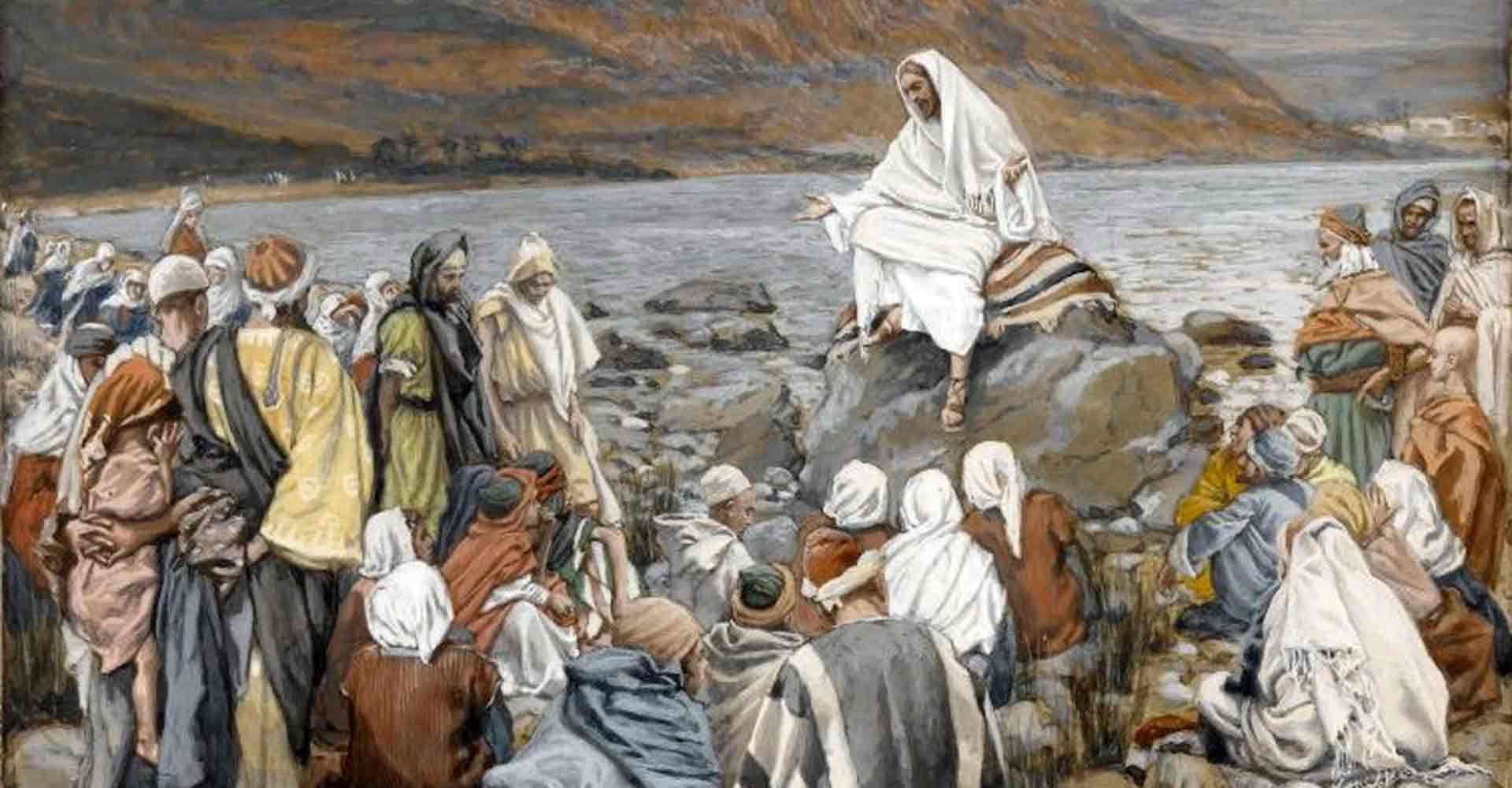
 11th Sunday in Ordinary Time B
11th Sunday in Ordinary Time B
Readings: Ezekiel 17:22-24 2 Corinthians 5:6-10 Mark 4:26-34
This Sunday’s readings use striking plant and animal images to express our Christian hope in the ultimate triumph of the Lord’s kingdom despite the smallness and apparent impossibility of present circumstances. Let us in faith and gratitude embrace the Lord’s fidelity to his promises in the lyrics of our responsorial psalm: “They that are planted in the house of the Lord/ shall flourish in the court of our God” (Ps 92:14)
In the Old Testament reading the prophet Ezekiel, who is living in exile in Babylon, encourages his troubled fellow exiles with a vision of the Lord God’s promise to establish his Messianic kingdom using the image of planting “a tender shoot” of the cedar “on a high and lofty mountain;/ on the mountain heights of Israel” where “it shall put forth branches and bear fruit/ and become a majestic cedar.” In the first part of chapter 17 Ezekiel fashions an elaborate allegory of eagles and cedars to describe the Lord’s decision to exile his people because of the infidelity of the last king of Judah, Zedekiah, to his solemn covenant with Nebuchadnezzar, the king of Babylon (17:1-21). But now the prophet assures the exiles of their return home and the Lord’s intention to establish a universal kingdom of peace where “Birds of every kind shall dwell beneath it (the majestic cedar).” As a consequence of the Lord’s saving actions, the prophet proclaims that all nations will come to know that the Lord’s word providentially guides all of history by punishing the proud and raising up the lowly. “And all the trees of the field shall know that I, the Lord,/ Bring low the high tree,/ lift high the lowly tree,/ Wither up the green tree,/ and make the withered tree bloom.”
In the Epistle reading Paul continues the theme of hope as he meditates on the tension in his apostolic ministry between continuing to “dwell in the body” while “away from the Lord” and being “away from the body and at home with the Lord.” Although Paul would prefer to go to his home with the Lord, he knows that the demands of his apostolic mission mean that he must continue to “walk by faith, not by sight” but in the full “confidence” that the integrity of his work in the body, and indeed “the lives of all”, will “be revealed before the tribunal of Christ.”
The Gospel contains the two parables—the seed growing secretly and the mustard seed which conclude Mark’s account of Jesus’ parables (4:1-34). Both are parables about “the reign of God” and contain sharp contrasts between small or insignificant beginnings and great, abundant endings. They must be related to the future outcome of the reign of God that is beginning in the events of Jesus’ ministry in Mark. Despite Jesus’ authoritative teaching and powerful miracles and exorcisms proclaiming the arrival of the reign of God, he has also met hostile opposition from the scribes and Pharisees which will culminate in his death on the cross (cf. 3:6). The Kingdom has made only small beginnings at this point, as Jesus has gathered a band of twelve disciples to share in his mission preaching the arrival of the kingdom and driving out demons (3:13-19).
Both parables feature the mysterious inevitability of the triumph of God’s kingdom. In the parable of the seed growing secretly a man simply scatters seed on the ground and then goes about his daily activities of rest and rising. Through it all “the seed sprouts and grows without his knowing how it happens.” The soil, not the man, “produces of itself first the blade, then the ear, finally the ripe wheat in the ear.” Only when the crop is ready does he wield the sickle for the harvest. Likewise, the mustard seed “is the smallest of all the earth’s seeds,” but when it is sown it becomes “the largest of shrubs” and, like the image of the mighty cedar in Ezekiel, its branches are large enough “for the birds of the sky to build nests in its shade.”
Jesus’ parables may even be a lampoon of the extravagant political expectations associated with the arrival of the Messiah. Instead of “a majestic cedar” who rules over the kingdoms of the earth, Jesus is a Messiah who begins the kingdom by healing the sick, calling the outcast, gathering a small band of peasant disciples, and causing opposition from the official leaders. He is a Messiah who is destined to be rejected and die on the cross. But, despite these scattered and small beginnings, paradoxically the kingdom of God is underway and will inevitably triumph just as the harvest follows the scattering of seed and a large mustard shrub comes from “the smallest of all the earth’s seeds.” Mark notes at the end of our reading that Jesus spoke to the crowd “only by way of parable, while he kept explaining things privately to his disciples.” The disciples’ task to understand the nature of the Kingdom of God and Jesus’ Messianic mission. As Mark’s gospel continues we will see that they often fail to understand and even abandon Jesus at the hour of his arrest. But even to these cowardly disciples the message of Jesus’ parables is that the time will come for the harvest and the small mustard seed will “become the largest of shrubs, with branches big enough for the birds of the sky to build nests in its shade.”
No comments:
Post a Comment